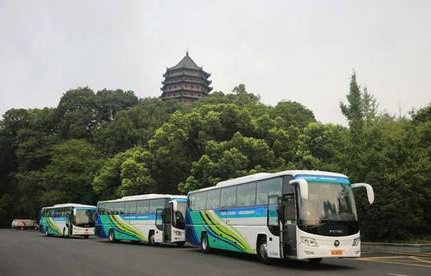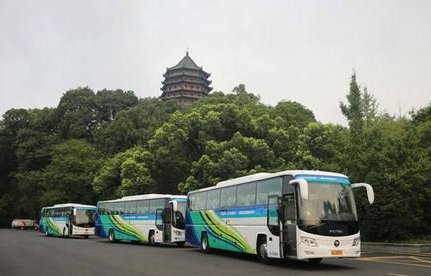By Wang Zhongying, People’s Daily

Occupying 54.5 percent of global land area and accounting for 63.9 percent of the world’s population as well as 90 percent of the world's GDP, G20 members are also responsible for 81.8 percent of the global consumption of primary energy, which results in their 82.9 percent share in total carbon dioxide emissions.
From the perspective of economic development, the geographical area and population of G20 members commensurate with their contribution to the world economy. However, there still leaves much potential for energy utilization efficiency.
Given its significant global status, the G20 should be a pioneer in global green development that leads the evolution of renewable energy under the guidance of green, cooperative, inclusive and shared development. To be more specific, the G20 should play a guiding role in the following three areas:
The G20 should actively put the Paris Agreement into effect and lead the implementation of development strategies for renewable energy. Early implementation of the Paris Agreement will chart the course for the global energy revolution and transformation.
The G20 should not only develop renewable energy on its own, but aid in the process of developing countries, thus setting an example in implementing the Paris Agreement.
In addition, the 20-member group should render full support to the “Belt and Road” construction, as China boasts obvious advantages in the development of renewable energy.
By relying on existing bilateral or multilateral mechanisms between China and relevant countries, the “Belt and Road” construction will spread the notion of green development and regenerative energy to the whole world, bringing benefits to local people and accelerate green development.
Furthermore, G20 countries should guide the technical development and application of renewable energy by taking the initiative in supporting the energy transformation of developing countries. In this way, energy transformation can bring direct economic benefit to developing countries.
There is only one Earth. For the G20 to lead green development, it has to break its own technical and trade barriers.
Considering the environmental cost of the exploitation and application of fossil fuels as well as the restoration cost of the ecological damage it caused, renewable energy now is able to compete with fossil energy in the market.
In the long run, global energy development will be less dependent on fossil fuel and embark on a promising path dominated by renewable energy.
(The author is Deputy Director General of Energy Research Institute of the National Development and Reform Commission.)
From the perspective of economic development, the geographical area and population of G20 members commensurate with their contribution to the world economy. However, there still leaves much potential for energy utilization efficiency.
Given its significant global status, the G20 should be a pioneer in global green development that leads the evolution of renewable energy under the guidance of green, cooperative, inclusive and shared development. To be more specific, the G20 should play a guiding role in the following three areas:
The G20 should actively put the Paris Agreement into effect and lead the implementation of development strategies for renewable energy. Early implementation of the Paris Agreement will chart the course for the global energy revolution and transformation.
The G20 should not only develop renewable energy on its own, but aid in the process of developing countries, thus setting an example in implementing the Paris Agreement.
In addition, the 20-member group should render full support to the “Belt and Road” construction, as China boasts obvious advantages in the development of renewable energy.
By relying on existing bilateral or multilateral mechanisms between China and relevant countries, the “Belt and Road” construction will spread the notion of green development and regenerative energy to the whole world, bringing benefits to local people and accelerate green development.
Furthermore, G20 countries should guide the technical development and application of renewable energy by taking the initiative in supporting the energy transformation of developing countries. In this way, energy transformation can bring direct economic benefit to developing countries.
There is only one Earth. For the G20 to lead green development, it has to break its own technical and trade barriers.
Considering the environmental cost of the exploitation and application of fossil fuels as well as the restoration cost of the ecological damage it caused, renewable energy now is able to compete with fossil energy in the market.
In the long run, global energy development will be less dependent on fossil fuel and embark on a promising path dominated by renewable energy.
(The author is Deputy Director General of Energy Research Institute of the National Development and Reform Commission.)
 Menu
Menu
 Commentary: G20 should be a pioneer in global green development
Commentary: G20 should be a pioneer in global green development
















